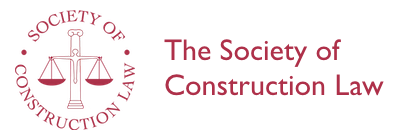Court and Tribunal Appointed Experts in Construction Disputes under Civil Law and Common Law - 'Hired Gun' v 'Inquisition'
Dr Peter Heink
July 2018
A paper based on the Commended entry in the Hudson essay competition 2017
In this paper Peter Heink analyses the legal background governing the appointment of experts by courts and tribunals, the role that they play and the ways in which impartiality is retained. Although international arbitration is seeing harmonisation of procedures there are differences in approach in other national court and arbitration proceedings. In particular, the author compares the provisions of the German Code of Civil Procedure with the English statutory law, noting that in Germany, experts are appointed as assistants to the court, whereas in England party-appointed experts are cross-examined in an adversarial process. Are these differences down to civil law versus common law? The paper examines the various arbitration rules concerning the use of experts: individual agreement of the parties, international conventions and rules provided by institutional bodies or the governing law.
1. Introduction - 2. Court appointed experts in England and in Germany - 2.1 Court and tribunal appointed expertsunder the German Code of Civil Procedure - 2.2 Court appointed expertsunder English statutory law - 3. Tribunal appointed experts under English and German civil procedure - 3.1 Tribunal appointed experts under German arbitration law, section 1049 of the ZPO - 3.2 Tribunal appointed experts under English statutory law - 4. Tribunal appointed experts: provisions of the law and arbitration rules - 5. International conventions - 6. Arbitration rules - 7. Practice of arbitrators and counsels - 8. Procedural issues about court and tribunal appointed experts - 8.1 Appointment and mandate of court/tribunal appointed experts - 8.2 Discretion of the tribunal or court vs party presentation - 8.3 Discretion of the arbitral tribunal regarding the rules of evidence applied - 9. Result and preview - 9.1 Issues of appointing experts - 9.2 Approaches of arbitration rules - 9.3 Approaches in national procedural law - 9.4 Result.
The author: Dr Peter Heink is a lawyer specialising in construction and architectural lawat law firm WüterichBreucker in Stuttgart. He holds a Masters in Business Engineering (MBE) in International Construction: Practice and Law from the University of Stuttgart, and has been appointed as an arbitrator by the German Institute of Arbitration (DIS).He both represents clients in proceedings before state courts and authorities and acts in arbitration proceedings.
Text: 19 pages
